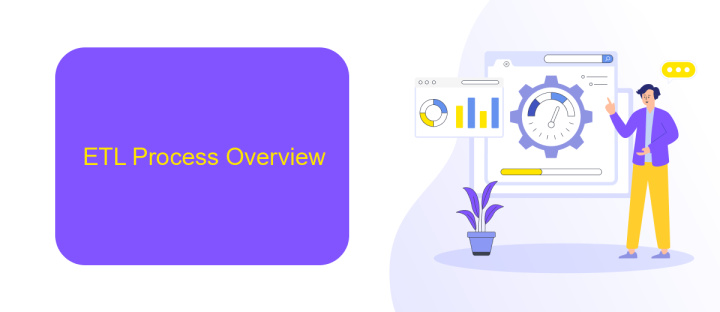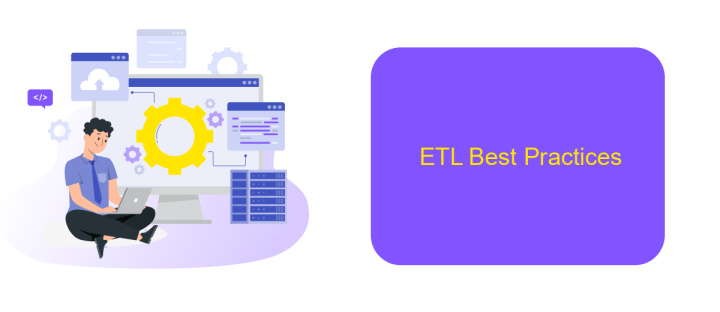ETL Data
ETL (Extract, Transform, Load) is a crucial process in data management and analytics. It involves extracting data from various sources, transforming it into a suitable format, and loading it into a data warehouse or other storage systems. This process ensures that data is accurate, consistent, and ready for analysis, enabling businesses to make informed decisions based on reliable information.
Introduction
ETL (Extract, Transform, Load) is a fundamental process in data management, enabling organizations to gather data from various sources, transform it into a usable format, and load it into a data warehouse for analysis. This process is crucial for making informed business decisions and maintaining data integrity.
- Extract: Data is collected from multiple sources, including databases, APIs, and flat files.
- Transform: The extracted data is cleaned, normalized, and enriched to meet business requirements.
- Load: The transformed data is then loaded into a target data warehouse or data lake.
Modern ETL tools, such as ApiX-Drive, simplify the integration process by providing seamless connectivity between various data sources and destinations. ApiX-Drive allows users to automate data workflows, ensuring that data is always up-to-date and readily available for analysis. This not only enhances efficiency but also reduces the risk of errors associated with manual data handling.
ETL Process Overview

The ETL process, which stands for Extract, Transform, Load, is a fundamental procedure in data warehousing and analytics. It begins with the extraction phase, where data is collected from various sources such as databases, APIs, and flat files. This data is then transformed to fit the desired format or structure, ensuring consistency and quality. The final step is loading, where the transformed data is deposited into a target database, data warehouse, or any other storage system for further analysis and reporting.
Effective ETL processes often require robust tools and services to handle complex data integration tasks. One such service is ApiX-Drive, which facilitates seamless integration by allowing users to connect multiple data sources and automate data workflows without extensive coding. ApiX-Drive supports a wide range of applications and platforms, making it a versatile solution for businesses looking to streamline their ETL operations. By leveraging such tools, organizations can ensure efficient data management and gain valuable insights from their data.
ETL Tools and Technologies

ETL tools and technologies play a crucial role in data integration and transformation processes. They facilitate the extraction of data from various sources, its transformation into a suitable format, and loading it into a target database or data warehouse. These tools help streamline data workflows, enhance data quality, and ensure timely data availability for analytics and reporting.
- Apache NiFi: An open-source data integration tool that supports powerful and scalable directed graphs of data routing, transformation, and system mediation logic.
- Talend: A widely used ETL tool that offers robust integration capabilities, including big data integration, cloud integration, and API services.
- Informatica PowerCenter: A comprehensive data integration solution known for its high performance, scalability, and extensive transformation capabilities.
- ApiX-Drive: A service that simplifies the setup of data integrations between various applications, automating data workflows without the need for coding skills.
- Microsoft SQL Server Integration Services (SSIS): A powerful ETL tool that allows for data extraction, transformation, and loading, with a strong focus on data warehousing.
Choosing the right ETL tool depends on the specific requirements of your project, such as data volume, complexity, and integration needs. Tools like ApiX-Drive can significantly reduce the complexity of setting up integrations, making it easier for businesses to automate their data workflows effectively. Integrating the right ETL tool ensures seamless data processing and enhances the overall efficiency of data management practices.
ETL Best Practices

Implementing best practices in ETL (Extract, Transform, Load) processes is crucial for ensuring data integrity and efficiency. Proper planning and execution can significantly enhance the performance and reliability of your data pipelines.
Firstly, it's essential to design your ETL processes with scalability in mind. As data volumes grow, your ETL processes should be able to handle increased loads without compromising performance. This involves choosing the right tools and technologies that support parallel processing and distributed computing.
- Automate error handling and logging to quickly identify and resolve issues.
- Optimize data transformations to reduce processing time and resource consumption.
- Schedule ETL jobs during off-peak hours to minimize impact on system performance.
- Regularly monitor and maintain your ETL processes to ensure they remain efficient and effective.
For seamless integration and automation, consider using tools like ApiX-Drive. ApiX-Drive simplifies the process of connecting different systems and automating data workflows, allowing you to focus on data analysis rather than manual integration tasks. By adhering to these best practices, you can ensure your ETL processes are robust, efficient, and scalable.
- Automate the work of an online store or landing
- Empower through integration
- Don't spend money on programmers and integrators
- Save time by automating routine tasks
Conclusion
In conclusion, ETL (Extract, Transform, Load) processes are fundamental to the efficient handling and utilization of data within any organization. By systematically extracting data from various sources, transforming it to meet specific business requirements, and loading it into a destination system, ETL ensures that data is accurate, consistent, and ready for analysis. This process not only enhances decision-making but also supports data-driven strategies, ultimately contributing to the overall success of the organization.
Moreover, the integration of advanced tools and services like ApiX-Drive can significantly streamline the ETL process. ApiX-Drive offers robust solutions for automating data integration, reducing manual effort, and minimizing errors. By leveraging such services, businesses can achieve seamless data flow between disparate systems, ensuring real-time data availability and enhancing operational efficiency. As data continues to grow in volume and complexity, the importance of efficient ETL processes and reliable integration tools will only increase, making them indispensable assets for any data-driven enterprise.
FAQ
What is ETL in data processing?
Why is ETL important for businesses?
How can I automate the ETL process?
What challenges can arise during the ETL process?
Can ETL processes be customized for specific business needs?
Strive to take your business to the next level, achieve your goals faster and more efficiently? Apix-Drive is your reliable assistant for these tasks. An online service and application connector will help you automate key business processes and get rid of the routine. You and your employees will free up time for important core tasks. Try Apix-Drive features for free to see the effectiveness of the online connector for yourself.


